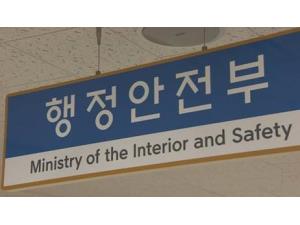



Date:20/05/19
 Support for Windows 7 will end in January 2020. Microsoft probably hopes the moribund operating system's users will switch to Windows 10, but the South Korean government plans to switch its machines over to a Linux distribution instead, according to a May 17 report from The Korea Herald.
Support for Windows 7 will end in January 2020. Microsoft probably hopes the moribund operating system's users will switch to Windows 10, but the South Korean government plans to switch its machines over to a Linux distribution instead, according to a May 17 report from The Korea Herald.
The report said testing Linux is supposed to help South Korea reduce the cost of maintaining its systems while also reducing its reliance on a particular operating system. Microsoft ending support for Windows 7 effectively forced the country to choose between updating to Windows 10, which will eventually meet the same fate, or exploring options that aren't controlled by a single entity. South Korea's government opted for the latter.
The Korea Herald said that the Ministry of the Interior and Safety will test Linux before deploying it to all of its devices. (Which, yeah, we certainly hope any government would be careful in that regard.) The ministry reportedly said, "it would test if the system could be run on private networked devices without security risks and if compatibility could be achieved with existing websites and software which have been built to run on Windows."
Switching to Linux is expected to cost South Korea roughly 780 billion won ($655 million) in total. Other details about the switch are scarce--we don't know what Linux distributions South Korea will be testing, on what timeline it expects to make the change, or what it plans to do if the tests show that switching to Linux would be prohibitively difficult. We suspect other governments and the private sector will be keen to know what South Korea finds.
Not that many organizations should have waited until now to figure out what they'll do once Windows 7 support ends. Microsoft said on January 14 that it would only support the operating system for another year, and the company started to notify Windows 7 users about its plans in March. It's been a decade since Windows 7 was released, and nearly five years since mainstream support for it ended, so there's been plenty of time to plan for this shift.
South Korea’s government will switch to Linux over cost concerns
 Support for Windows 7 will end in January 2020. Microsoft probably hopes the moribund operating system's users will switch to Windows 10, but the South Korean government plans to switch its machines over to a Linux distribution instead, according to a May 17 report from The Korea Herald.
Support for Windows 7 will end in January 2020. Microsoft probably hopes the moribund operating system's users will switch to Windows 10, but the South Korean government plans to switch its machines over to a Linux distribution instead, according to a May 17 report from The Korea Herald.The report said testing Linux is supposed to help South Korea reduce the cost of maintaining its systems while also reducing its reliance on a particular operating system. Microsoft ending support for Windows 7 effectively forced the country to choose between updating to Windows 10, which will eventually meet the same fate, or exploring options that aren't controlled by a single entity. South Korea's government opted for the latter.
The Korea Herald said that the Ministry of the Interior and Safety will test Linux before deploying it to all of its devices. (Which, yeah, we certainly hope any government would be careful in that regard.) The ministry reportedly said, "it would test if the system could be run on private networked devices without security risks and if compatibility could be achieved with existing websites and software which have been built to run on Windows."
Switching to Linux is expected to cost South Korea roughly 780 billion won ($655 million) in total. Other details about the switch are scarce--we don't know what Linux distributions South Korea will be testing, on what timeline it expects to make the change, or what it plans to do if the tests show that switching to Linux would be prohibitively difficult. We suspect other governments and the private sector will be keen to know what South Korea finds.
Not that many organizations should have waited until now to figure out what they'll do once Windows 7 support ends. Microsoft said on January 14 that it would only support the operating system for another year, and the company started to notify Windows 7 users about its plans in March. It's been a decade since Windows 7 was released, and nearly five years since mainstream support for it ended, so there's been plenty of time to plan for this shift.
Views: 366
©ictnews.az. All rights reserved.Similar news
- Azerbaijani project to monitor disease via mobile phones
- Innovative educational system to be improved under presidential decree
- NTRC prolongs license of two TV and radio organizations for 6 years
- Azerbaijan establishes e-registry for medicines
- Azerbaijani museum introduces e-guide
- Nar Mobile opens “Nar Dunyasi” sales and service center in Siyazan city
- International conference on custom electronic services held in Baku
- OIC secretary general to attend COMSTECH meeting in Baku
- Azerbaijan develops earthquake warning system
- New law to regulate transition to digital broadcasting in Azerbaijan
- Azerbaijani State Social Protection Fund introduces electronic digital signature
- Intellectual traffic management system in Baku to be commissioned in December
- Tax Ministry of Azerbaijan started receiving video-addresses
- World Bank recommends Azerbaijan to speed up e-service introduction in real estate
- Azerbaijan to shift to electronic registration of real estate





















